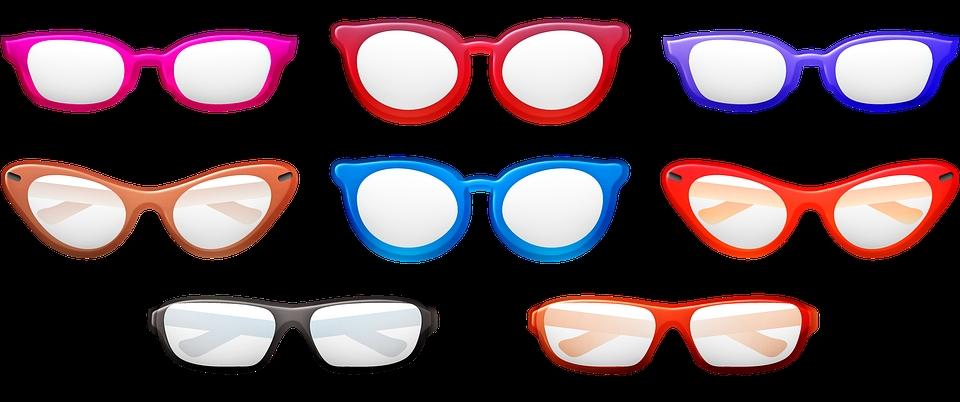
6 minute read
GLASSES Vs PERSONALITY
What your glasses say about your personality
When interacting with others, it’s only natural to want to put your best foot forward. Everything from your composure to your speech patterns gives off an impression. The broad strokes of your personality are discernible within the opening moments of a first meeting. So making sure you carry yourself off well is vital. From the clothes you wear, to what glasses say about your personality. It all speaks volumes! Even the glasses resting on the bridge of your nose can communicate something about yourself. But how exactly do they bring your personality into focus? Well, your choice of eyewear can tell people that you are any of the following:
Advertisement
Stylish Yes, glasses are now the perfect style statement, lending finesse to any ensemble that you throw together. Your eyewear is the ultimate accessory, the final full stop or bow tie to an exquisite outfit. They show that you not only dress to impress, but that you also have other things to do. Your glasses are a device, a tool to be used, and not something that’s just there for show. There’s a real power and authority in that, and of course, to land the right impression, you’ll need to work with the right optician or frame manufacturer. Glasses can be cool, after all, but not all of them are! For a guaranteed selection of elegant eyewear, browse
International Eyewear. This company have affordable frames for every occasion, whether you’re going for the wise scholar look or the cool cruiser with a pair of slick sunglasses. With their guidance, you’ll look whatever part you wish to fulfil.

Self -caring
These days, it’s fashionable to care about yourself and your own wellbeing. Some people get glasses just because they want to see better, and that’s the start and end of the process. That’s completely fair, but glasses can provide an in-depth overview of how well you look after yourself. For example, it’s been claimed that some glasses can help combat screen fatigue, so your eyewear might be not only helping you to see, but protecting your health also! As a wearer of glasses, you will be communicating to others that your health is important to you, and that you keep it all in check. The details in your life matter, your wellbeing matters, and you thrive on being as present as possible at every waking moment. Wearing glasses tells people that you have standards. Nothing less than perfect vision will do, and you settle for no half measures.
Intelligent
While it’s something of a stereotype to assume that those wearing glasses are smarter, the science may well back up this consensus…
In 2018, a University of Edinburgh study found that intelligent people were 30% more likely to have genes related to poor eyesight, which bodes well for you as a wearer. Of course, one should never abide by stereotypes too much, but when the studies swing things in your favour, you should absolutely run with it.
Wearing glasses is no guarantee that you’re a brain box, but if you can quote the statistic above in the face of any teasing, you’ll certainly look smart even if you’re not!
If you appear intelligent, people gravitate toward you, looking to you for guidance and wisdom.
You’ll become someone who is ought to be trusted and confided in.
Who knows what kinds of friendships or relationships can come to fruition from all of this? Other people must fight to look smart overtime, but if you can land that impression early on, great things will follow all the sooner.

What do your glasses say about your personality?

Self-care techniques and general lifestyle changes can help manage the symptoms of many mental health problems. They may also help prevent some problems from developing or getting worse. Here are some tips for looking after yourself that you might find helpful.
Be self aware
Spot your early warning signs. If you can, try to be aware of how you're feeling, and watch out for any signs you might be becoming unwell. These will be individual to you, but it can be useful to reflect on what these may be so you can get support as soon as possible.
Keep a mood diary. Tracking your moods can help you to work out what makes you feel better or worse. You can then take steps to avoid, change or prepare for difficult situations. You can create your own mood diary or find one online – there are many freely available on the internet and as apps for your phone. Build your self-esteem. Taking steps to increase your self-esteem can help you to feel more confident & able to cope.
Feel Connected
Feeling connected to other people is important. It can help you to feel valued and confident about yourself, and can give you a different perspective on things. If you can, try to spend some time connecting with friends and family – A text, phone call or online video chat can make a difference. If you don't have supportive friends and family around you and are feeling isolated, there are other ways you can make connections. For example, you could try joining online events with other people who share a common interest such as books, sports, chess, television, films and more..


Make time for yourself
Relaxation – you may already know what helps you relax, like having a bath, listening to music or taking your dog for a walk. If you know that a certain activity helps you feel more relaxed, make sure you set aside time to do it. Mindfulness – mindfulness is a therapeutic technique that involves being more aware of the present moment. This can mean both outside, in the world around you, and inside, in your feelings and thoughts. Practising mindfulness can help you become more aware of your own moods and reactions, but not everyone finds mindfulness helpful. Getting into nature – getting out into a green environment, such as a park or the countryside, is especially good for you. Even if you don't have a garden or aren't very mobile, caring for plants or animals indoors can still help you get some benefits from nature. Regular exercise doesn't have to be very strenuous or sporty to be effective – to start with you could try gentle exercise like going for a short walk, yoga or swimming. The important thing is to pick something you enjoy doing, so you're more likely to stick with it.
Avoid drugs and alcohol
While you might want to use drugs or alcohol to cope with difficult feelings, in the long run they can make you feel a lot worse.

Make time for personal care
When you're experiencing a mental health problem, it's easy for personal care to not feel like a priority. But small everyday things, such as taking a shower and getting fully dressed, can make a big difference to how you feel.
Eat healthily
What you eat & when you eat, can make a big difference to how well you feel.









